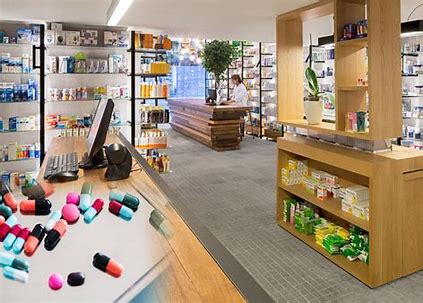Stakeholders have called for urgent action to revitalise Nigeria’s pharmaceutical industries, to bring under control the escalating medicine prices and accessibility challenges.
They made the call on Wednesday during a Webinar hosted by TheCable Newspaper Limited to mark its 10th anniversary.
The Coordinating Minister of Health and Social Welfare, Prof. Muhammad Pate, who delivered a gripping speech, called for decisive action to rejuvenate the country’s pharmaceutical industry.
Pate emphasised the critical need to tackle the escalating costs of medicines in the country.
The minister drew attention to the longstanding issue of healthcare financing and affordability in the country.
He underscored the challenges facing millions of Nigerians who lack adequate insurance coverage, forcing them to bear the burden of healthcare costs out of pocket.
According to him, the situation has persisted for over four decades, with less than 10 per cent of Nigerians having access to health insurance or any form of financial protection for medical expenses.
“This stark reality underscores the urgent need for comprehensive reforms to ensure equitable access to healthcare services for all citizens,” he said.
He expressed concern over the widening gap in healthcare affordability and access.
He highlighted the detrimental impact of out-of-pocket expenses on vulnerable populations, including low-income earners and those living in rural areas.
The minister emphasised the government’s commitment to implementing policies and initiatives aimed at expanding health insurance coverage and improving affordability for all Nigerians.
On the demand side, he said that a massive effort was underway to reform the health insurance landscape.
A foremost Pharmacist, Prince Julius Adewale Adelusi-Adeluyi, Founder & Chairman, of Juli Pharmacy Plc, advocated for industrialisation to address medicine affordability and availability challenges in the country.
Adelusi-Adeluyi, who is also the former Minister of Health, Federal Republic of Nigeria, highlighted the remarkable success of Nigeria’s film industry as a model for industrialisation, underscoring the potential for the pharmaceutical sector.
Drawing parallels with India’s pharmaceutical prowess, he urged Nigerian leaders to seize the moment and harness the country’s abundant human resources to kickstart a dynamic strategy for industrialisation.
He echoed the sentiments on the urgent need for determined leadership to drive the transformation of the pharmaceutical industry.
With Nigeria’s vast market potential and strategic geographic position within Africa, he emphasised that the time was ripe to initiate a groundswell of industrialisation efforts.
The Director-General of the National Agency for Food and Drug Administration and Control (NAFDAC), Prof. Moji Adeyeye called for an emphasis on local drug manufacturing to combat insecurity in the country.
Adeyeye highlighted NAFDAC’s initiatives to boost local production and ensure quality standards.
She said that NAFDAC had issued a stern warning about the dangers of neglecting local manufacturing in the pharmaceutical sector.
She emphasised the critical need to prioritise domestic production to address drug insecurity in Nigeria.
She said that under her leadership, NAFDAC had taken proactive steps to bolster local manufacturing capabilities.
She noted that during her tenure, the agency expanded the list of drugs under NAFDAC’s regulatory oversight from nine to 34, effectively discouraging imports and sensitising domestic production.
Highlighting NAFDAC’s technological advancements, she proudly declared the agency’s leading position in Africa and second globally in implementing state-of-the-art track-and-trace technology.
“This technology aims at enhancing drug safety and combating counterfeit products in the market,” she stated.
She emphasised NAFDAC’s commitment to promoting local content and adhering to international quality standards.
She praised President Bola Ahmed Tinubu’s administration for its focus on local manufacturing and reiterated NAFDAC’s role in ensuring that Nigerian pharmaceutical products met stringent quality for both domestic consumption and export.
As Nigeria strives to achieve self-sufficiency in pharmaceutical production, she said that NAFDAC’s efforts to support and regulate local manufacturers were crucial in ensuring the availability of safe and high-quality medicines for Nigerians.
The Executive Secretary of the Anambra Primary Healthcare Development Agency, Dr Chisom Uchem sounded the alarm on the repercussions of drug shortages on public health outcomes.
Uchem emphasised the critical link between medication availability and therapeutic success.
According to her, the inability to access essential drugs can lead to therapeutic failure, compromising the effectiveness of medical treatments and exacerbating health conditions.
In light of these concerns, she advocated for the government to prioritise research into the use of local herbal remedies for pharmaceutical production.
She stressed the importance of harnessing indigenous knowledge and resources to develop alternative treatment options that were accessible and effective for Nigerians.
NAN


